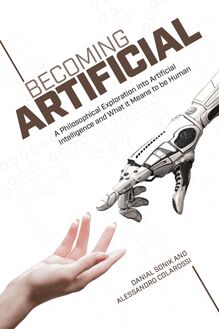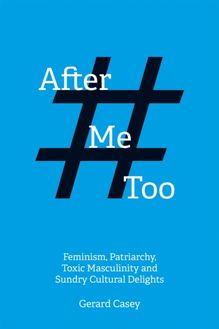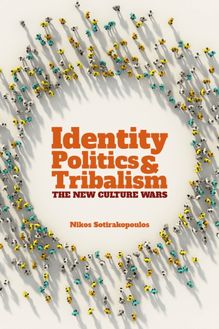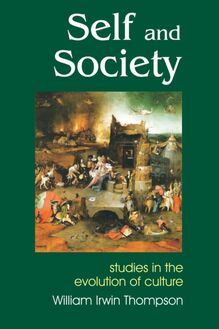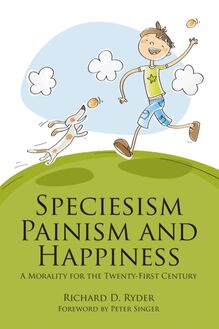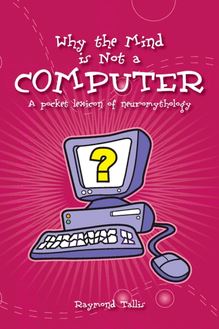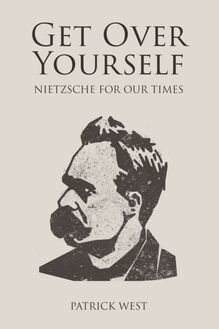After #MeToo , livre ebook
165
pages
English
Ebooks
2020
Vous pourrez modifier la taille du texte de cet ouvrage
Obtenez un accès à la bibliothèque pour le consulter en ligne En savoir plus
Découvre YouScribe en t'inscrivant gratuitement
Découvre YouScribe en t'inscrivant gratuitement
165
pages
English
Ebooks
2020
Vous pourrez modifier la taille du texte de cet ouvrage
Obtenez un accès à la bibliothèque pour le consulter en ligne En savoir plus
Publié par
Date de parution
02 avril 2020
Nombre de lectures
1
EAN13
9781788360333
Langue
English
Publié par
Date de parution
02 avril 2020
Nombre de lectures
1
EAN13
9781788360333
Langue
English
After #MeToo
Feminism, Patriarchy, Toxic Masculinity and Sundry Cultural Delights
Gerard Casey
SOCIETAS
Essays in political & cultural criticism
imprint-academic.com
Published in the UK in 2020 by
Imprint Academic
PO Box 200, Exeter EX5 5YX
www.imprint-academic.com
Digital edition converted and distributed by
Andrews UK Limited
www.andrewsuk.com
Copyright © 2018 Gerard Casey
The right of Gerard Casey to be identified as the author of this work has been asserted in accordance with the Copyright, Designs and Patents Act 1998.
The moral rights of the author have been asserted. All rights reserved. Except for the quotation of brief passages for the purposes of criticism and discussion, no part of this publication may be reproduced, stored in a retrieval system, or transmitted, in any form or by any means without the prior written permission of the publisher, nor be otherwise circulated in any form either digital or physical other than that in which it is published and without a similar condition being imposed on the subsequent purchaser. Any person who does so may be liable to criminal prosecution and civil claims for damages.
The views and opinions expressed herein belong to the author and do not necessarily reflect those of Imprint Academic or Andrews UK Limited.
To the one who,
in 2017,
challenged me to
persist with my work
My own sex, I hope, will excuse me, if I treat them like rational creatures, instead of flattering their fascinating graces, and viewing them as if they were in a state of perpetual childhood
— Mary Wollstonecraft
Foreword and Acknowledgements
I must begin by making a confession. When it comes to women, I am biased. ‘We knew it!’ some of my readers will think, ‘we’ve always suspected as much, and now he’s finally come out and owned up to it!’ Yes, but wait a minute. I am indeed biased when it comes to women, but I am biased in their favour! All my life I have been more favourably disposed towards women than towards men and indeed, when I was teaching at the university, I was always instinctively more accommodating and sympathetic to my female students than I was towards my male students, so much so that I had to be vigilant to ensure I didn’t inadvertently relatively disadvantage the male students. Despite the d eep suspicions of some of those who do not love me, then, I’m not a misogynist; I just don’t happen to believe that all women are, like Mary Poppins, practically perfect in every way. I believe, on the contrary, that they are real human beings, with all the virtues and all the faults that being human brings with it. I shouldn’t have to say this but I suppose I must: my criticisms of feminism in this book are not criticisms of women in general.
To pre-emptively avoid possible misunderstandings, let me make it clear where I stand on male-female issues. I believe that, subject to the constraints of reality, there should be no state-imposed discriminatory legal policies that favour either women or men. However, I also believe that, subject to the zero aggression principle ( No one may initiate physical violence against the person or property of another ), individuals or groups of individuals should be free to do as they wish with their property, including favouring one sex over another when it comes to its disposal, if that is their choice. Such decisions, of course, have their consequences, and those who make them must be prepared to live with negative non-aggressive responses to them, including criticism, shunning or boycotting. I believe that women and men should be free to make the social and career choices that they wish, whether others approve of them or not. As long as such choices involve no violation of the zero aggression principle, others are obliged to tolerate such choices, but there is no obligation on others to facilitate them, nor should they be obliged to approve of them on pain of legal sanctions. This is the libertarian core of After #MeToo . That said, many of the views I express and the approach I take in After #MeToo , while they are consistent with the bedrock principle of libertarianism, the Zero Aggression Principle, are not necessarily implied by it, and some libertarians could well, and very likely will, disagree with some of what I’ve written. If I had to find a label to describe the general tenor of my extra-libertarian approach here, the best one would probably be ‘socially conservative’.
When I was polishing the final version of the text, I came across a second-hand copy of David Thomas’s 1993 book, Not Guilty: Men—the Case for the Defence . This discovery was quite serendipitous as I wasn’t looking for this book—I couldn’t have been looking for it since I didn’t even know it existed! As I read through it, I was alternately exhilarated and depressed—exhilarated to find a book from the last millennium touching on so many (but not all) of the points I wanted to make in my own book, and depressed for exactly the same reason! It really is depressing, despite the rampant gynocentrism of the last forty years, to find feminists today still chanting the same dirges of oppression, harassment, rape culture, pay gaps and so on ad nauseam . The biggest difference between now and forty years ago is that matters are now much worse, so much so that 1993 begins to look like the good old days. Another excellent book I came across just before finishing the final draft of this book was Steve Moxon’s The Woman Racket . Once again, I was alternately exhilarated and depressed to find a book, this time from the twenty-preteens, that echoed many of Thomas’s points and pre-echoed not a few of my own. Whether the convergence of Thomas, Moxon and Casey is either a case of great minds thinking alike or fools seldom differing, I will leave to the reader to decide.
Some may take exception to the levity displayed at various points in this book in the form of sarcasm, irony and rhetorical exaggeration. I make no apology for such levity and it is not to be taken as an indication that I don’t think the issues are serious. However, some kinds of folly are so egregious that rebutting them piously gives them more credit than they deserve. I do, of course, employ arguments in various places in the book but my main weapon throughout is the solvent power of laughter. The Devil, it is said, cannot bear to be mocked, and mockery is what the devils of #MeToo and the other diabolical members of the sorority of sorrowful siblings get in full measure. My mockery is directed primarily at human folly and not, except incidentally, at the humans who perpetrate that folly. My religion demands that I love my enemies (that particular commandment really cramps my style!) and I believe that in this book, I am doing just that by practising one of the spiritual works of mercy, namely, counselling the ignorant. I write what I write not de haut en bas but as a fellow sinner among sinners; God only knows (and so do my family and friends!) that I have committed my share of idiocies to the common pool of human folly, perhaps more than my share if some of my severer critics are to be believed.
In a few places, I have made use of some material I have already published but I’ve kept this to a minimum. The re-used material comes primarily from Freedom’s Progress? (on the patriarchy) and from ZAP (on women and work).
I believe that all the statements made in this book about named or identifiable individuals are substantially true. In almost every such case, these statements are a re-publication, either verbatim or in paraphrase, of reports already available in the public domain. In any event, statements made in this book are my honest opinions and are made in the public interest.
Thanks are due to Peter White and Tim Crowley for their help and support. I am especially grateful to Steve Blendell for his superhuman and supererogatory efforts of proofreading. And a special thanks to Jason Walsh for transforming a shapeless mass of words into something approaching a thing of beauty, if not quite a joy forever.
Readers who would like a quick overview of the themes of the book should read the Coda.
The writing of this book was completed on 4 November 2019.
Fun with Feminism
When women kiss it always reminds one of prizefighters shaking hands
—H. L. Mencken
Western society is obsessed with women to the point of mass neurosis
—David Thomas
The apparently simple question, ‘Are you a feminist?’ contains a trap for the unwary. If you answer no , you’ll be depicted as some kind of knuckle-dragging Neanderthal who thinks women should be chained, bare-footed, to the kitchen sink. If you answer yes , you’ll be taken as committing yourself to supporting the campaign for special privileges and perks for women, just because, and only because, they are women.
During the course of the scramble for leadership of the UK’s Conservative Party in May 2019, most of the candidates when asked were willing to describe themselves as feminists, but not Dominick Raab. Shock! Horror! Cue Twitter rants and mass expostulation. Who, even in the Conservative Party, could be so benighted as to reject the idea of treating men and women equally? Well, not Dominick Raab as it happens, who describes himself as being ‘passionate about equality’, an odd kind of thing to be passionate about, but let’s take him at his word. But how can that be? Didn’t he deny being a feminist, and isn’t feminism precisely the doctrine that holds that men and women should be treated equally? It turns out that Raab is not alone in denying he’s a feminist. So do most women! Are they rejecting the idea that men and women should be treated equally? In one study carried out by the Fawcett

